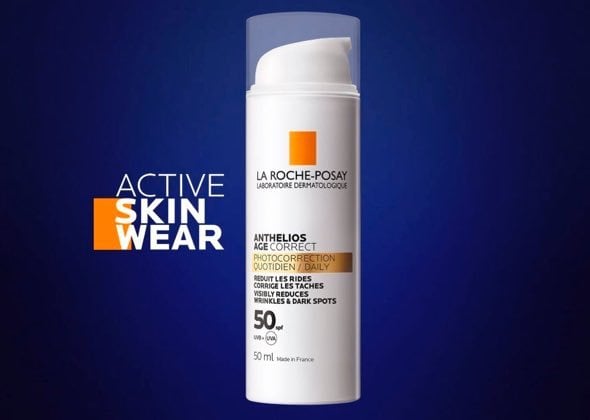THE SYMPTOMS OF
DRY, SENSITIVE SKIN
How to recognise if you have dehydrated skin
To diagnose dry skin conditions, dermatologists look for visible surface signs such as dry patches, scales, stiffness, roughness, or a dry skin rash. As well as these clinical symptoms skin dryness can cause uncomfortable and painful sensations like tautness, tingling, and hot-feeling skin. Extremely dry skin can trigger the dreaded "itch-scratch cycle": Dry, sensitive skin can begin to itch, so it's natural that you want to scratch it. But this brings only temporary relief, and at the same time the scratching damages your skin. The impaired skin barrier then lets irritants and allergens penetrate more easily. These cause renewed itching, and an even stronger urge to scratch... and so begins a vicious cycle.
The appearance and sensations caused by dry skin can upset the quality of daily life. Many women who suffer from dry skin say that they avoid wearing makeup; some can even feel less attractive and lose confidence in themselves.
WHAT CAUSES
DRY, SENSITIVE SKIN?
To understand dry skin care, first understand the causes
Your skin acts as a barrier to keep the harsh world at bay. It needs to maintain its moisture levels to protect itself from external aggressors. To remain supple and intact, skin requires a water content of 10–15%. When the outer layers of your skin – the epidermis and, mostly, the corneal layer – lose water, your skin becomes dehydrated. The corneal cells detach from one other more easily, causing fine desquamation – also known as flaky skin.
The biological processes that drive skin dehydration are complex, they include deficiency in a skin protein called filaggrin, lipid deficiency, deficiency in the Natural Moisturising Factor (NMF), an insufficiency of the proteins and enzymes responsible for the keratinisation and organisation of cells, and degradation of the hydrolipidic film.
There are many triggers that exacerbate dry, dull skin. Some are external, and some are internal:
- The environment – low temperatures in winter, high temperatures in summer, the wind, ultraviolet rays from the sun, and centrally heated or air-conditioned indoor environments all encourage the evaporation of water, leading to dehydrated skin.
- Allergens and pollutants attack the outer layer of your skin, making it more susceptible to water loss.
- Prolonged or repeated contact with water can lead to dehydration. This can often happen if you have a job that requires you to wash or have contact with water frequently, for example you're a hairdresser or a nurse.
- Abrasives, such as pumice stones or shower gloves, and harsh chemicals, such as those found in household cleaning products, can all affect your skin's barrier function.
- Taking certain medicines (for example retinoids or corticosteroids) and eczema flare-ups can lead to skin dryness.
- Nutrition is important in maintaining healthy skin. A deficiency of essential fatty acids can undermine your skin's resilience.
- Ageing and hormonal changes also reduce dermal hydrophilic components (your skin's ability to attract water).
- Dehydration causes dry skin! It sounds obvious, but it needs to be said – most of us simply don't drink enough water.
EFFECTIVE
DRY SKIN TREATMENT
Simple steps to help to keep your skin hydrated
Your skin may be naturally prone to dryness, so even if you can't control the weather, here are some simple steps you can take to protect your skin:
- The best way to fortify your skin against harsh conditions is to moisturise regularly with hydrophilic, humectant moisturisers that attract and retain water in your skin, helping it to maintain optimal hydration.
- In winter, cover exposed skin with a scarf and gloves. In summer, practice safe sun protection.
- In your home or office, turn down the central heating and open the windows from time-to-time. Don't sleep with the heating or air-conditioning on. If your indoor atmosphere is very dry, consider getting a humidifier.
- Eliminate allergens like dust and mites as much as possible by vacuuming carpets and furniture and washing bedding regularly. Make sure that your home is well-aired and free of mould. Choose hypoallergenic cleansing and skin care products.
- Take short, warm showers as opposed to long, hot baths. If you can't resist an occasional soak, add an emollient bath oil. Moisturise your still-damp skin within 10 minutes after a bath or shower.
- Wear rubber gloves when cleaning or washing dishes. If your job requires frequent hand-washing use a hydrating hand cream.
- Use gentle exfoliators – and use them sparingly.
- Eat a healthy diet rich in vitamins A, C, and E and essential fatty acids. If your skin is very dehydrated, consider taking these as supplements for two months.
- Drink water – at least 1.5 litres a day.
MAKE HYDRATING SKINCARE
A HABIT
Develop a regular moisturising regime to keep your skin supple and bright
No matter what the causes of your dry skin, a properly nourishing, hydrating, and protective skincare regime will really help to restore suppleness and brightness to your skin.
There are many types of skincare products: Hydrophilic products attract water into the skin, humectants help the skin to retain water, and hydrophobic products limit water evaporation by creating a film on the skin's surface. It's useful to choose different products for different situations, seasons, and times of the day.
To keep your skin optimally hydrated at all times, develop the hydrating skincare habit:
- Moisturise twice a day, even if at times you feel that your skin doesn't need it.
- After your shower or bath, pat skin dry and apply moisturiser to your still-damp face and body within 10 minutes.
- To avoid damaging the epidermis, use gentle make-up removers such as micellar waters.
- Use sunscreen every day.
- In cold weather use a rich barrier cream on your extremities.
- Carry hydrating hand cream in your handbag.
- For instant rehydration, always keep a can of La Roche-Posay Thermal Spring Water handy.
N.B. Men are not exempt from dry skin. As well as following all the suggestions above, always moisturise after shaving.
HERO
HYDRATION PRODUCTS
La Roche-Posay Laboratory has designed outstanding products for the face and body, created to keep your skin supple and hydrated.
Dry skin skincare for your face
Going beyond conventional moisturising, the HYDREANE range harnesses the therapeutic properties of La Roche-Posay's famed Thermal Spring Water. Rich in selenium, HYDREANE Thermal Spring Water Creams instantly infuse your skin with moisture-replenishing antioxidants, and also help to reduce itching, stinging, and discomfort. After just four weeks, skin is visibly and lastingly softer and more radiant.
Your skin's needs for hydration change with the seasons and time of day, so we've created our ultimate facial moisturiser for dry and sensitive skin in three textures:
- HYDREANE Light is a lightweight cream ideal for daytime use or warmer weather. It has a fluid, non-greasy texture that doesn't feel sticky.
- HYDREANE Rich is ideal as a night cream or for the colder seasons. Its creamy, velvety texture protects skin against damage from the harshness of the elements.
- HYDREANE Extra-Riche is a specially designed moisturiser for very dry and sensitive skin. Its nourishing and protective formula deeply hydrates fragile skin and brings added suppleness.
Dry skin skincare for your body
The skin on your body also has specific needs. La Roche-Posay's clinically provLen LIPIKAR range is the market leader in dry skin products for the body. For optimal hydration all year round, choose the appropriate LIPIKAR product for the time of day and season:
- LIPIKAR Fluide – with Niacinamide to soothe skin – is an excellent daily lotion for dry skin. Its light texture spreads easily and is rapidly absorbed. Apply after your shower, get dressed, and go!
- In summer, dry winds, sun, and sweating all contribute to water loss. LIPIKAR Gel-Fluide [LIPIKAR GEL FLUIDE] is a light cooling and soothing formula enriched with Shea butter and glycerin that will intensely hydrate your skin without suffocating it.
- After a long day, pamper your body with a relaxing bath. Then massage your still-damp skin with enriching LIPIKAR Milk, for all-night hydration.
- Winter can be the harshest time for skin. Protect your sensitive skin from dry skin rash with the extra richness of LIPIKAR Baume AP+. Formulated to combat extreme dryness without being greasy or sticky, it works to re-balance and stabilise the microbiome and restore the skin barrier to shield your skin from the worst of the elements.
- Non-greasy LIPIKAR Xerand Hand Repair Cream deeply hydrates your skin and acts to restore and protect the cutaneous barrier.
And finally... mineral rich La Roche-Posay Thermal Spring Water is your hero product for instant hydration. For a refreshing spritz of moisture wherever you are, keep it in your handbag.








